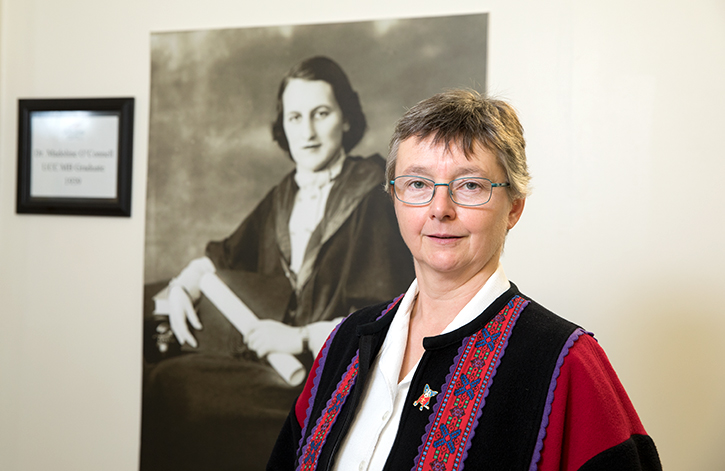- Home
- About the EDI Unit
- News & Events
- Publications
- EDI Training Hub
- Equality Committee
- Gender Identity and Expression
- Sexual Violence and Harassment Framework
- Speak Out
- University of Sanctuary
- Athena SWAN
Professor Nicole Müller, Department of Speech & Hearing Sciences
Nicole Müller, Professor of Speech & Hearing Sciences

College: Medicine & Health
School: Clinical Therapies
Research Interests: Ageing, multilingualism, dementia, communication disorders, clinical linguistics
IRIS profile: http://research.ucc.ie/profiles/C025/nicolemuller
What first attracted you to your academic discipline?
I have always been interested in languages, and started out as a student of comparative philology and Celtic languages. For anybody interested in language, languages, communication and so forth, communication disorders represent the perfect mix of challenges.
How were you drawn to your current research interests?
The use of language is key in understanding how damage to the brain affects the quality of life of individuals in society, at many different levels: from the brain functions involved in producing and understanding speech and language, right across to how language is used in societies (for example the media) to construct and make sense of notions such as 'dementia', or 'disease', or 'disability'. My enduring interest in dementia and language started with a collaboration with my good friend and colleague Jackie Guendouzi, which has lasted, off and on, something like 20 years by now. My interests in bilingualism, and particularly Irish, go back to secondary school days!
What professional achievements do you consider particularly rewarding?
A few years ago, a Fulbright Scholar award enabled me to spend six months in Galway, combining my interests in Irish, bilingualism and dementia.
Have you had professional role models? What impact did they have on you?
I've been very fortunate to learn from and collaborate with some of the giants in my discipline. And then I've also worked with (and learned from) people where my verdict was 'this is not the way to do it.' 'Impact' is difficult to define.
What aspects of your work do you find most rewarding?
The mix! Working with the next generation of professionals and researchers. Building cross-disciplinary collaborations and being able to develop and pursue my ideas together with people who may come from different theoretical or professional perspectives.
Academic careers present specific challenges in achieving balance, whether between research, teaching and administration, or in work/life balance. What advice might you give a student/younger colleague/your 18-year old self?
I sometimes think that the notion of 'balance' is not particularly helpful, especially the notion of 'work-life balance', which seems to presuppose that work and life are somehow separate from each other. Support networks are crucial, be they among family, friends, or colleagues. Don't be afraid of reinventing yourself.
